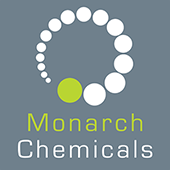In response to challenges faced by the chemical industry following the UK's exit from the EU, the Department for Environment and Rural Affairs (Defra) has introduced the UK REACH alternative transitional registration model (ATRm). This model aims to reduce costs for businesses while maintaining high standards of human health and environmental protection.
Background:
Post-Brexit, the UK established UK REACH, aligning with EU REACH principles to safeguard human health and the environment in Great Britain. Northern Ireland operates under the EU REACH framework.
Concerns and Solutions:
The chemical industry raised concerns about the significant costs associated with accessing EU data packages for UK REACH transitional registrations. In response, Defra and regulators proposed the ATRm to address these concerns and ease the financial burden on businesses.
ATRm Overview:
The ATRm focuses on a targeted approach, aiming to lower business costs while upholding a commitment to health and environmental protection. It acknowledges advancements in understanding chemical hazards and emphasises the need for in-depth knowledge of uses and exposure for effective risk assessment.
Policy Direction:
The government's ambition is to create a comprehensive understanding of chemical use in Great Britain, enabling regulators to assess exposure and risk for better regulatory actions. The ATRm recognises that replicating all EU REACH registration data is unnecessary for UK REACH regulatory work.
Progress and Proposals:
Significant progress has been made in refining information requirements for Great Britain registrants, particularly focusing on 'use and exposure.' Proposals include reducing essential minimum hazard information for transitional registrations, resulting in a substantial anticipated reduction of approximately £2 billion in industry costs.
Regulator powers will be enhanced to quickly obtain data for regulatory or risk prioritisation. Defra is also reviewing fee structures for a more sustainable funding model and revising restriction processes for swift action.
Next Steps:
Defra plans to consult on detailed policy aspects in early 2024, aiming to streamline the UK REACH framework and improve its efficiency. The proposed changes intend to enhance the overall effectiveness of the UK REACH framework while lessening the financial burden on businesses.
This is a summary from the Defra public statement, published on 9th November 2023 outlining the government's ambitions for and progress on the development of the new ATR model. The statement in full can be viewed on the government website here: https://www.gov.uk

